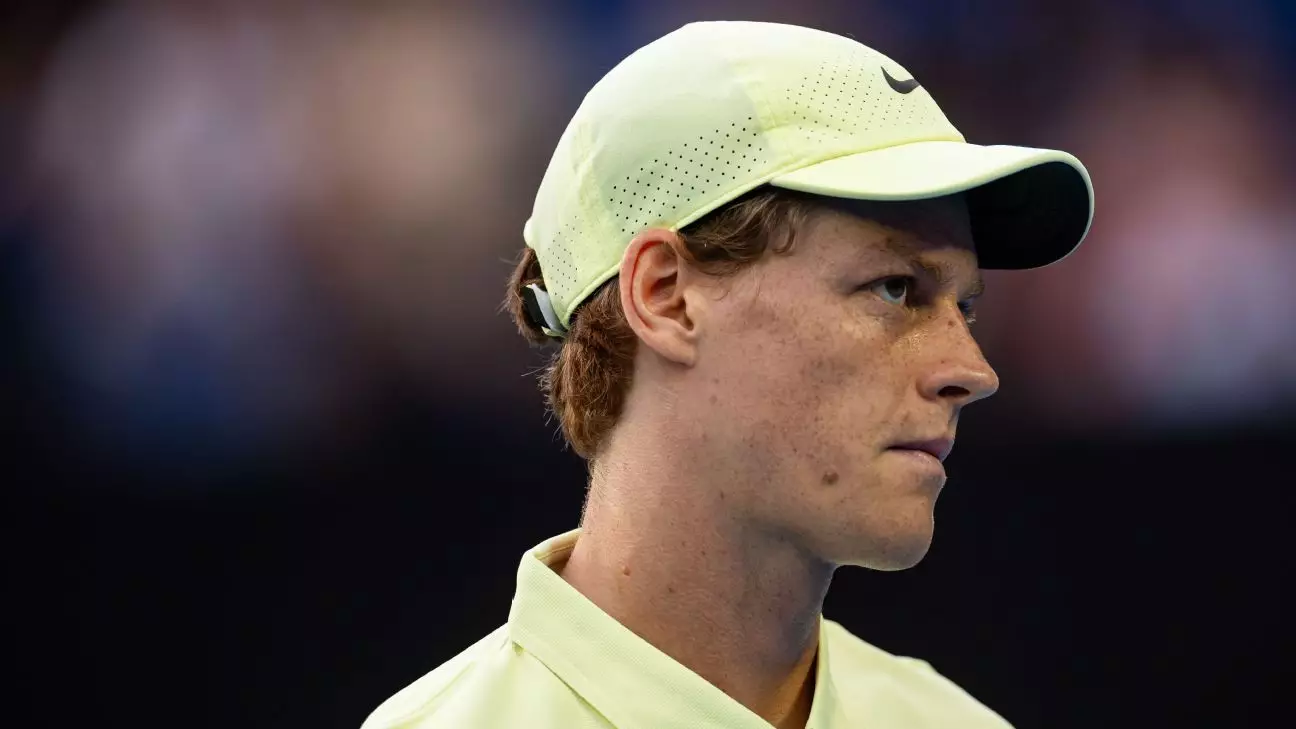In a significant turn of events in the world of sports, the nomination of Italian tennis prodigy Jannik Sinner for the Laureus World Sportsman of the Year award has been rescinded following a three-month ban stemming from positive doping tests. This decision, announced by Sean Fitzpatrick, the chairman of the Laureus World Sports Academy, highlights the ongoing battle against doping in sports and its profound implications on athlete recognition and career trajectories. Despite Sinner’s rising status in tennis, the involvement of the World Anti-Doping Agency (WADA) in his case has overshadowed his achievements, reminding fans and athletes alike that integrity in sports often comes at a price.
Sinner faced a tumultuous year following his positive tests for Clostebol, an anabolic steroid he attributed to accidental contamination. His narrative—that trace elements resulted from a massage by a trainer—was accepted by the International Tennis Integrity Agency (ITIA), which did not impose a suspension initially. However, WADA’s appeal led to a settlement that resulted in a three-month ban, a scenario that raises questions about the thresholds of fairness and accountability in sports. This incident serves as a cautionary tale for athletes, reminding them of the potential repercussions of even unintentional associations with banned substances. The fine line between personal accountability and external factors is often blurred, yet regulations are unforgiving.
Withdrawal from the Laureus nomination not only tarnishes Sinner’s immediate prospects but also casts a long shadow on his budding career. Despite the lack of sanctions preventing him from participating in major tournaments like the French Open, the implications of a doping violation linger. Athletes are often defined by their accolades and recognitions, and a noted absence from such prestigious awards can alter perceptions of their legacy, efficiency, and integrity. The stigma attached to doping violations frequently leads to skepticism among fans and peers, which could have lasting effects on an athlete’s brand and marketability.
The Future for Jannik Sinner and the Laureus Awards
While Sinner’s journey now faces obstacles, the ongoing competition among elite athletes provides a compelling backdrop for future triumphs. The forthcoming Laureus awards, where last year’s winners included Novak Djokovic and Aitana Bonmatí, will surely pepper discussions about ethics in sports. As nominations shift, it remains to be seen how the public and athletes alike will respond. Will the integrity of sports overshadow momentary blunders, or will the shadows of doping continue to sully reputations?
Athletes have the responsibility to remain vigilant about their health practices, understanding the potential risk factors associated with their training and treatment routines. For Jannik Sinner, this serves as a pivotal moment of reflection and growth—a chance to rise above the challenges and recommit to the integrity that defines true sportsmanship. For the Laureus Academy, this situation emphasizes the balance between honoring exceptional talent and upholding the ethos of fair competition.


Leave a Reply